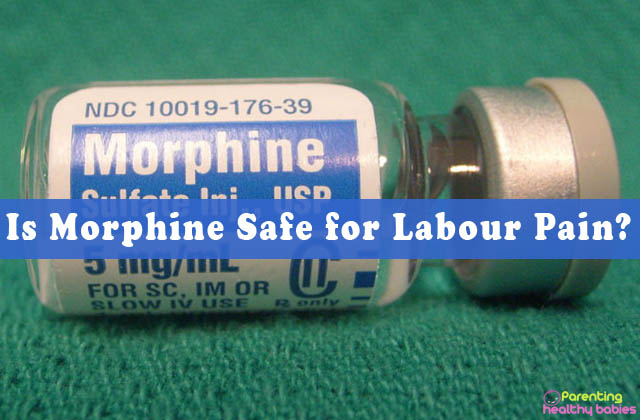Avoid smoking, malnutrition, make sure you do not suffer from vitamin a deficiency, avoid substance abuse, test stds, Quantity of HIV virus in blood, factors related to labour and childbirth, avoid breastfeeding, tested for HIV before getting pregnant, HIV/AIDS testing and know how HIV affects your baby are some of the ways to keep your baby safe if you have HIV/AIDS.
What is HIV/AIDS?
HIV (human immunodeficiency virus) is a virus that causes aids (acquired immunodeficiency syndrome). A person may be “HIV positive” but not have aids. An HIV infected person may not develop aids for 10 years or longer. A person who is HIV positive can transmit the virus to others when infected blood, semen or vaginal fluids come in contact with broken skin or mucus membranes. An aids infected person cannot fight off diseases as they would normally and are more susceptible to infections, certain cancers and other health problems that can be life-threatening or fatal.
All You Need to Know About HIV in Pregnancy
If a woman is infected with HIV, her risk of transmitting the virus to her baby is reduced if she stays as healthy as possible. According to the march of dimes, new treatments can reduce the risk of a treated mother passing HIV to her baby to a 2 percent or less chance.
Read on to find out in what healthy ways you can keep your baby safe, if you are suffering from HIV/AIDS:
Avoid smoking
Smoking is not only harmful for the lungs, but it is also harmful for your unborn baby, especially if you are suffering from HIV/aids. The tar accumulated in your lungs can make it easy for the HIV virus to attack your baby, as smoking attacks the immune system of our body.
Avoid substance abuse
This is one of the worst things you can do to yourself and your unborn child. Substance abuse also attacks your immune system directly and makes it easier for the HIV virus to attack your unborn baby.
Make sure you do not suffer from vitamin a deficiency
Vitamin a deficiency makes your body weaker and leaves it incapable of fighting the HIV germs, thereby posing a threat to the health of your child.
Malnutrition
Malnutrition is one of the prime reasons why most women in Africa and other disease ridden third world countries are more prone to HIV/AIDS. Make sure you follow a healthy and nutritious diet during your pregnancy.
Get tested for other stds
Even if you save your child from HIV, you are still not sure about the presence of other stds in your body. Make sure you get tested for other stds as well.
Quantity of HIV virus in blood
The amount of HIV virus present in your blood could determine how likely are you to pass this disease to your unborn/newborn baby. Merely being HIV positive doesn’t indicate that your child will be HIV positive too. So make sure that you get tested regarding the quantity of virus present in your body.
Factors related to labour and childbirth
Women are usually given a lot of medicines and shots in order to induce labor and make childbirth as pain free as possible. However, if you are HIV positive, you need to make sure that these medications do not interfere with your HIV treatment, as that could harm your baby.
Breastfeeding
Although not enough research has been done on this, but it has been found out that women passed the HIV virus to their newborn babies through breastfeeding. Probably the virus can easily pass through breast milk. So, it would be advised that instead of feeding your baby from your breast, you should feed them formula milk or some other safe substitute after consulting your doctor.
Get tested for HIV before getting pregnant
Women who are planning on becoming pregnant or who are pregnant should be tested for HIV as soon as possible. The woman’s partner should also be tested. The march of dimes recommends that all women of childbearing age who may have been exposed to HIV should be tested before becoming pregnant. Women who have not been tested before becoming pregnant should be offered counselling and voluntary testing during pregnancy. Women who have not been tested during pregnancy can be screened during labour and delivery with rapid tests which can produce results in less than one hour. This allows for treatment to protect the baby should the results be positive.
Know how the test is done
HIV/AIDS testing is conducted with a blood test. A woman’s health care provider may offer testing and counseling or may refer her to a local testing sight. Home access HIV test system allows for confidential testing with the use of a home testing kit.
Know how HIV affects your baby
In most cases, HIV will not cross through the placenta from mother to baby. If the mother is healthy in other aspects, the placenta helps provide protection for the developing infant. Factors that could reduce the protective ability of the placenta include in-uterine infections, a recent HIV infection, advanced HIV infection or malnutrition.
Your future might seem bleak if you get to know that you are pregnant and suffering from HIV at the same time, but do not worry, HIV is no longer a life threatening disease if detected on the right time. Make sure that you get the right treatment done, so that you can stay healthy as well as save your baby from this disease.
Hope this article was of help to you! Please share your comments/queries/tips with us and help us create a world full of Happy, Healthy and Empowered Women and Healthy Babies!!!!













